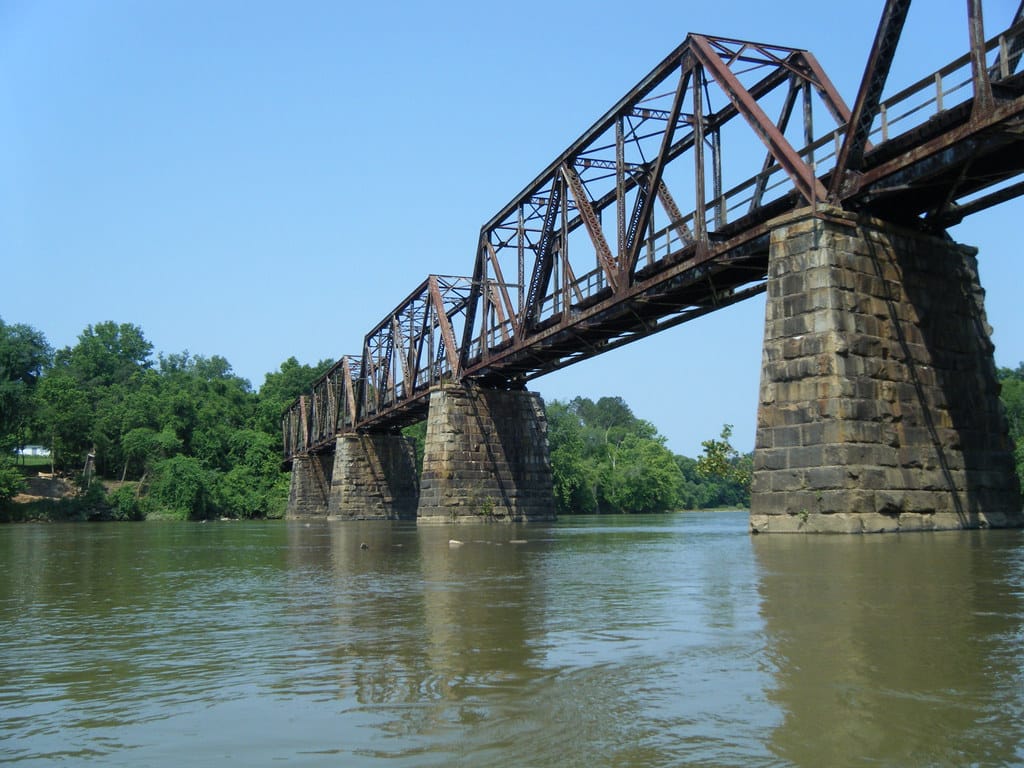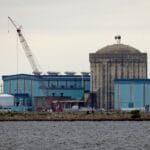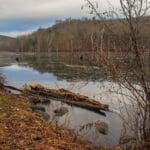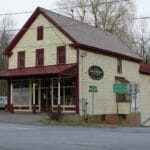Jenkinsville, South Carolina, a small, primarily African American community, sits quietly between the Broad and Little Rivers, east of Monticello Reservoir. Its story, however, is anything but quiet. This town of just a handful of residents lives in the shadow of a giant: the Virgil C. Summer Nuclear Generating Station, a landmark that has profoundly shaped its destiny. This article delves into Jenkinsville’s unique narrative — its history, its people, its challenges, and its uncertain future in a changing energy landscape.
Discovering Jenkinsville: A Town Defined by Nuclear Power
Jenkinsville’s identity is inextricably linked to the V.C. Summer Nuclear Station. The plant’s presence has not only defined the town’s physical landscape but has also deeply influenced its economy and demographics. This unusual juxtaposition of rural tranquility and industrial might is at the heart of Jenkinsville’s story. But what is it really like to live alongside this nuclear legacy?
The Human Element: Voices from Jenkinsville
The true heart of Jenkinsville lies with its people. Understanding their experiences and perspectives is crucial to grasping the town’s unique character. What is daily life like for the 46 residents recorded in the 2010 census? What are their hopes and fears for the future? Their stories bring Jenkinsville to life, revealing the resilience and spirit of a close-knit community. Further research could uncover the rich tapestry of personal narratives within this small town.
Beyond the Plant: A Deeper Dive into History
Jenkinsville’s story extends far beyond the nuclear plant. The town boasts a rich history, with roots reaching deep into South Carolina’s past. Sites listed on the National Register of Historic Places, such as the Kincaid-Anderson House, Ebenezer Associate Reformed Presbyterian Church, the Dr. John Glenn House, High Point, Little River Baptist Church, and Mayfair Plantation, offer glimpses into bygone eras. Exploring these historical landmarks may reveal fascinating insights into Jenkinsville’s evolution and the lives of its residents throughout history.
Navigating an Uncertain Energy Future
The evolving energy landscape, with the rise of renewable sources, presents significant questions for Jenkinsville. How will this shift impact a town so closely tied to nuclear power? What opportunities and obstacles lie ahead? The answers may shape the community’s trajectory in the years to come. This is an area of ongoing research, and further investigation could shed light on potential future scenarios for Jenkinsville.
Planning Your Visit: Exploring Jenkinsville and Beyond
For those intrigued by Jenkinsville’s story, a visit offers a unique opportunity to experience this community firsthand. While local amenities are limited, convenient accommodations are available in nearby cities like Columbia, Union, and Harbison, all within easy driving distance. This proximity to larger urban centers provides visitors with a range of options for lodging and other services.
Jenkinsville’s Demographics: A Closer Look
The 2010 census depicted Jenkinsville as a small, entirely African American community. However, demographic data from 2020 would likely reveal shifts and nuances in the population. This information could offer valuable insights into the community’s evolution over time. Further research could illuminate these changes and their implications for Jenkinsville’s future.
The Unfinished Symphony: The V.C. Summer Expansion Project
The abandoned expansion project at the V.C. Summer Nuclear Station casts a long shadow. This unfinished endeavor stands as a symbol of unrealized potential and raises questions about the long-term role of nuclear energy in Jenkinsville’s destiny. Investigating the factors that led to the project’s demise could provide a deeper understanding of its impact on the community, both economically and psychologically.
Homes and Essential Services: The Fabric of Daily Life
Understanding the state of housing and essential services is fundamental to assessing any community. What is the housing market like in Jenkinsville? What about the vital infrastructure, such as roads, utilities, and essential services? Examining these practical aspects provides crucial insights into the town’s present state and its potential for future growth and development.
The V.C. Summer Nuclear Plant: A Deeper Dive into Jenkinsville’s Defining Feature
The Virgil C. Summer Nuclear Generating Station is not merely a nearby power plant; it is deeply ingrained in Jenkinsville’s identity. Its impact on the local economy and the daily lives of its residents is undeniable. This section delves into the complex relationship between Jenkinsville and the V.C. Summer plant, exploring how it has shaped the town and its people.
A Symbiotic Relationship: The Plant and the People
The plant provides the primary source of employment for Jenkinsville residents, suggesting a strong economic dependence on this single industry. This close relationship likely fosters a unique community dynamic, where the plant’s operations are intertwined with the rhythms of daily life. Further investigation could reveal the intricate ways in which the plant influences the social fabric of Jenkinsville.
The Unfulfilled Promise: The Abandoned Expansion Project
The halted expansion project at V.C. Summer serves as a stark reminder of the economic vulnerabilities faced by towns heavily reliant on a single industry. This event likely had a profound impact on Jenkinsville, prompting reflection on the importance of economic diversification. Exploring the psychological and emotional toll of this setback on the community could offer valuable insights.
A Rich Tapestry of History: Exploring Jenkinsville’s Past
Beyond the nuclear plant, Jenkinsville possesses a rich history waiting to be uncovered. Landmarks like the Kincaid-Anderson House and the Ebenezer Associate Reformed Presbyterian Church offer glimpses into the town’s past, suggesting a deep-rooted heritage. Investigating these historical sites could provide a more nuanced understanding of Jenkinsville’s evolution over time.
Rural Life and its Challenges: Adapting to Limited Amenities
Life in Jenkinsville presents unique challenges. The limited local amenities probably necessitate frequent travel for essential services, fostering resourcefulness and adaptability among residents. This aspect of rural life contributes to the unique character of Jenkinsville and its community.
Jenkinsville’s Future: Navigating the Shifting Energy Landscape
As the world increasingly embraces renewable energy sources, Jenkinsville faces an uncertain future. Its close ties to nuclear power necessitate adaptation to the evolving energy landscape. Exploring potential economic diversification strategies and leveraging the town’s unique history and location could offer pathways to future prosperity.
Jenkinsville and Jonesville, SC offer distinct experiences, showcasing the diverse character of South Carolina. While Jenkinsville grapples with its nuclear legacy, Jonesville offers a different perspective on small-town life in the South. Both towns provide glimpses into the rich tapestry of communities that make up the state.
Jenkinsville: A Microcosm of the Nuclear Age
Jenkinsville’s narrative is not merely a local anecdote; it resonates with broader themes of economic development, energy policy, and the complex relationship between industry and community. The town’s experience offers valuable lessons about the human cost of ambitious projects and the need for sustainable and equitable development.
The $9 Billion Question: The V.C. Summer Nuclear Project’s Impact
The abandoned V.C. Summer nuclear expansion project left a $9 billion scar on South Carolina’s landscape. In Jenkinsville, the impact was particularly devastating. The promised jobs and economic revitalization never materialized, leaving the community grappling with unemployment, economic hardship, and a profound sense of loss. This event underscores the risks associated with large-scale projects and the importance of careful planning and community engagement.
The Human Cost of Progress: Jenkinsville’s Struggle for Identity
The failed project had a profound impact on Jenkinsville’s identity. The town, once defined by the promise of nuclear energy, now struggles to define its future. The emotional toll on residents is undeniable. Exploring their stories would offer a deeper understanding of the human cost of failed promises and the challenges of rebuilding trust.
Lessons Learned: Navigating the Complexities of Economic Development
Jenkinsville’s story serves as a cautionary tale. It highlights the importance of diversified economic strategies and the need for transparency and accountability in large-scale projects. The town’s experience offers valuable lessons for communities across the country grappling with the complexities of economic development and the long-term implications of industrial projects.
Jenkinsville at a Crossroads: Charting a Path Forward
The future of Jenkinsville remains uncertain. The ongoing discussions about reviving the V.C. Summer project, decommissioning the site, or exploring alternative uses, will shape the town’s trajectory. The community’s resilience, combined with strategic planning and support, may offer a path toward revitalization and a brighter future. The nuclear industry, especially in South Carolina, faces complex issues surrounding economic development, energy policy, and corporate accountability as a result of this abandoned project. While ongoing discussions suggest the possibility of restarting the nuclear project, the future of V.C. Summer, and indeed of Jenkinsville, remains uncertain.
- Unlock Black Pepper’s Secrets: A Complete Guide - April 26, 2025
- Discover Long Black Pepper: Flavor & Health Benefits - April 25, 2025
- Shocking Twists: The Grownup Review: Unreliable Narration - April 25, 2025

















2 thoughts on “Jenkinsville, South Carolina: Life in the Shadow of a Nuclear Legacy”
Comments are closed.